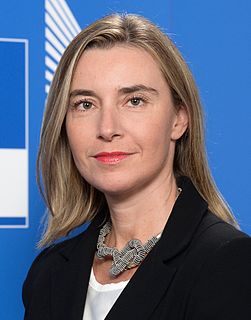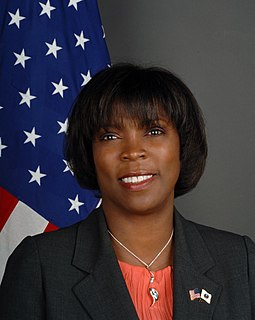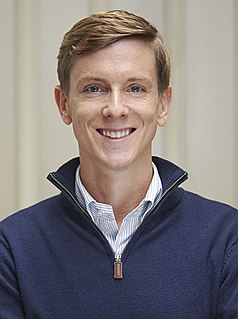A Quote by Angelina Jolie
I think the global community always has a ... has a responsibility to any humanitarian crisis. And I think it's in our best interest to address a humanitarian crisis on this scale because displacement can can lead to a lot of instability and aggression.
Related Quotes
I think the place maybe to watch with the greatest worry right at the moment, and to try to help the most, may be those parts of Africa around Somalia that are enduring a climate-caused and really record-breaking drought. It may be the greatest humanitarian crisis since the end of World War II. And of course, where humanitarian crises happen, so do political instability. This is the world that we're building and building fast. And it's the world that people are trying somehow to slow down. Trying very hard to bring down this fossil fuel machine before it does any more damage.
Although this crisis in some ways started in the United States, it is a global crisis. We bear a substantial share of the responsibility for what has happened, but factors that made the crisis so acute and so difficult to contain lie in a broader set of global forces that built up in the years before the start of our current troubles.
... it is not a crisis of our environs or surroundings; it is a crisis of our lives as individuals, as family members, as community members, and as citizens. We have an 'environmental crisis' because we have consented to an economy in which by eating, drinking, working, resting, traveling, and enjoying ourselves we are destroying the natural, god-given world.
They think my father has a lack of concern for human rights, but regardless of details, the Americans should be humanitarian in dealing with his family, because we are human. Saddam has three young ladies and they have children, I have five, Rana has four, and Hala has two. Therefore, our father is very dear to us. His grandchildren love him a lot. Why aren't humanitarian factors taken into account?
The humanitarian wishes to be a prime mover in the lives of others. He cannot admit either the divine or the natural order, by which men have the power to help themselves. The humanitarian puts himself in the place of God.
But he is confronted by two awkward facts; first, that the competent do not need his assistance; and second, that the majority of people positively do not want to be "done good" by the humanitarian. Of course, what the humanitarian actually proposes is that he shall do what he thinks is good for everybody. It is at this point that the humanitarian sets up the guillotine.
I really want to move away from the old model in which you have to rely on people giving $10 after a humanitarian crisis to a newer model where people give money but also their time and their skills, whatever they have, to the causes that are personally meaningful to them well before the crisis moment presents itself.




































